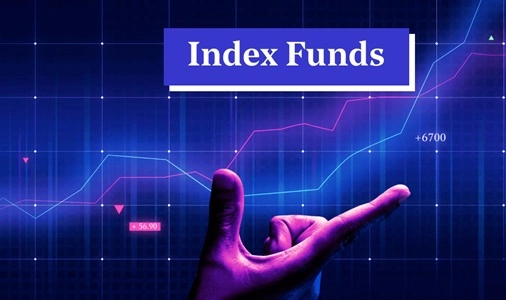Index funds are passive investment vehicles that track the performance of a particular stock market index, such as the Nifty 50, Sensex, or S&P 500. Unlike actively managed mutual funds, where fund managers make investment decisions, index funds replicate the holdings of an index and aim to match its returns.
In India, index funds have gained popularity among investors due to their low cost, diversification benefits, and ease of investment. They are an excellent option for long-term wealth creation and are preferred by investors who want steady, market-matching returns without active portfolio management.
However, index funds also have some limitations, such as lack of flexibility, limited downside protection, and dependency on overall market performance. In this article, we explore the advantages and disadvantages of index funds to help investors make an informed decision.
Quick Overview: Advantages & Disadvantages of Index Funds

| Advantages | Disadvantages |
|---|---|
| Low Expense Ratio (Cheaper Than Active Funds) | No Active Management & No Alpha Generation |
| Diversification Across Multiple Stocks | Limited Downside Protection During Market Crashes |
| Steady & Market-Matching Returns | Cannot Outperform the Market |
| Lower Risk Compared to Individual Stocks | Exposed to All Stocks in the Index (Including Poor Performers) |
| Less Portfolio Management & Research Required | Not Suitable for Short-Term Gains |
| Ideal for Long-Term Wealth Creation | Dividends Are Automatically Reinvested (No Flexibility) |
Advantages of Index Funds
1. Low Expense Ratio (Cheaper Than Active Funds)
One of the biggest advantages of index funds is their low expense ratio. Since they are passively managed, they do not require high-cost fund managers, research teams, or frequent trading, making them cheaper than actively managed funds.
For example:
- Nifty 50 Index Fund may have an expense ratio of 0.2%
- Actively managed mutual funds may charge 1.5% to 2.5%
A lower expense ratio means that more of the investor’s money stays invested, leading to higher long-term returns.
2. Diversification Across Multiple Stocks
Index funds spread investments across all stocks in an index, reducing the risk associated with investing in a single stock. Investors get exposure to various sectors, helping balance out market fluctuations.
For instance:
- Nifty 50 Index Funds invest in 50 top companies across sectors like banking, IT, FMCG, and pharma.
- Sensex Index Funds invest in India’s top 30 companies.
This diversification minimizes the impact of poor-performing stocks on the overall portfolio.
3. Steady & Market-Matching Returns
Index funds provide market returns without excessive risk. They track the benchmark index closely, ensuring that investors earn similar returns to the overall market performance.
For example:
- If the Nifty 50 gains 12% in a year, a Nifty 50 index fund will deliver nearly the same return (minus minimal fees).
- In contrast, actively managed funds may outperform or underperform based on the fund manager’s decisions.
4. Lower Risk Compared to Individual Stocks
Investing in individual stocks carries company-specific risks, whereas index funds spread risk across multiple companies. Even if a few stocks underperform, others may compensate, providing more stability.
For example, if one bank stock in the Nifty 50 falls, other strong performers in the IT, pharma, and FMCG sectors can balance the overall index fund returns.
5. Less Portfolio Management & Research Required
Investors do not need to actively monitor stock market movements or conduct extensive research. Since index funds automatically track an index, investors can adopt a passive, long-term approach without making frequent adjustments.
This makes index funds ideal for working professionals, new investors, and those preferring a hands-off investment strategy.
6. Ideal for Long-Term Wealth Creation
Historical data shows that stock markets tend to rise over time, making index funds an excellent choice for long-term wealth creation. Investing in broad-based index funds for 10-20 years can yield substantial returns due to compounding benefits.
For example:
- Nifty 50 Index has delivered an average annual return of 12-14% over the past two decades.
- Sensex has grown from 100 points in 1979 to over 70,000 points in 2023, proving long-term investment value.
Investors looking for consistent, inflation-beating returns with minimal effort prefer index funds.
Disadvantages of Index Funds
1. No Active Management & No Alpha Generation
Since index funds do not involve active stock selection, they cannot outperform the market. In contrast, actively managed funds have fund managers who try to generate alpha (excess returns over the index) by selecting high-potential stocks.
For instance, during a bull market, an actively managed fund may select high-growth stocks and outperform the Nifty 50, while an index fund can only match the index performance.
2. Limited Downside Protection During Market Crashes
Index funds mirror market movements, so when the market falls, index funds fall with it. Unlike active fund managers who can adjust portfolios to reduce losses, index funds remain fully invested in the index, regardless of market conditions.
For example, during the COVID-19 market crash in March 2020, the Nifty 50 fell over 30%, and index fund investors saw similar declines in their portfolios.
3. Cannot Outperform the Market
Index funds only replicate the market’s performance. They do not take advantage of high-growth stock opportunities, which can sometimes lead to lower returns than actively managed funds.
For example:
- If a fund manager identifies a sector with rapid growth (like IT or EVs), an active fund may generate higher-than-market returns.
- Index funds, on the other hand, cannot adjust to capitalize on such trends.
4. Exposed to All Stocks in the Index (Including Poor Performers)
Index funds invest in all companies within the index, including stocks that may be underperforming. Unlike active funds that avoid weak stocks, index funds blindly follow the index composition.
For example:
- If a company in the Nifty 50 is underperforming, an index fund still holds it, dragging down returns.
- Active fund managers, however, may sell poor performers and reinvest in better opportunities.
5. Not Suitable for Short-Term Gains
Index funds are ideal for long-term investment horizons but not suitable for short-term traders or those looking for quick profits. Since they track market movements, they may experience slow growth during sideways or volatile market phases.
6. Dividends Are Automatically Reinvested (No Flexibility)
Most index funds automatically reinvest dividends from their holdings rather than paying them out to investors. This can be a disadvantage for those seeking regular dividend income.
For instance, a dividend-paying stock in the Nifty 50 may distribute profits, but index fund investors may not receive these dividends directly.
Who Should Invest in Index Funds?
Ideal for:
- Long-term investors seeking steady, market-based returns
- Beginners who don’t want to research stocks
- Passive investors looking for low-cost wealth creation
- Risk-averse investors preferring stable, diversified investments
Not Suitable for:
- Traders looking for short-term profits
- Investors seeking active stock selection for higher returns
- Those needing downside protection during market crashes
Conclusion: Are Index Funds a Good Investment?
Index funds are one of the best investment options for those seeking low-cost, diversified, and long-term market exposure. They provide consistent returns, require minimal effort, and are suitable for passive investors.
However, investors looking for market-beating returns, active stock selection, or downside protection may find actively managed funds more suitable.
Anantha Nageswaran is the chief editor and writer at TheBusinessBlaze.com. He specialises in business, finance, insurance, loan investment topics. With a strong background in business-finance and a passion for demystifying complex concepts, Anantha brings a unique perspective to his writing.


